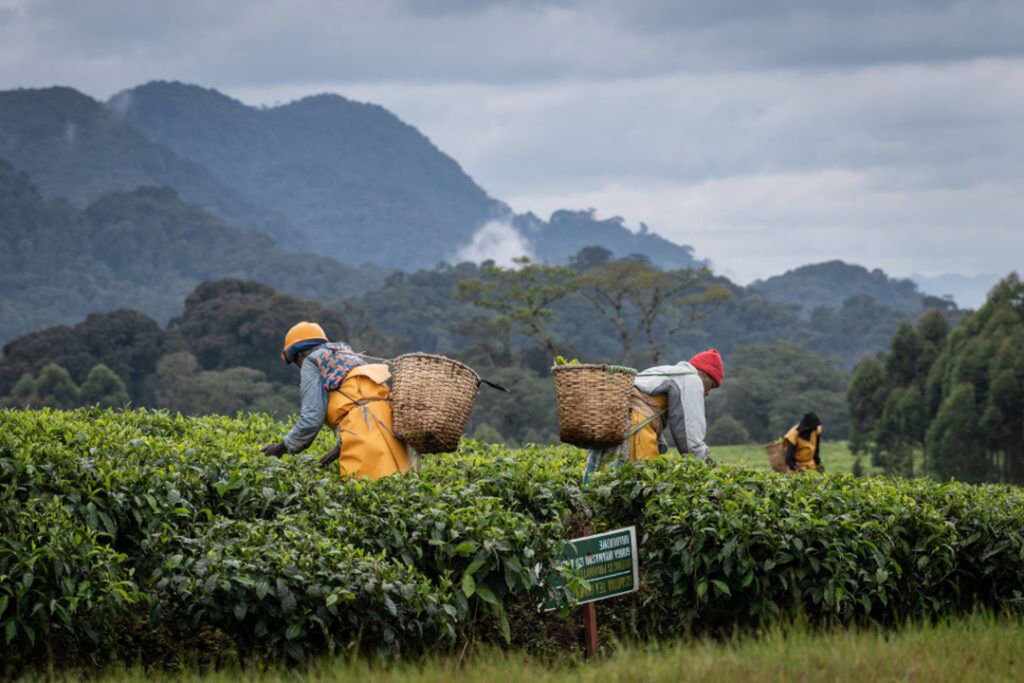ADF STAFF
Despite continuous COVID-19 challenges, Rwanda, Tanzania and Uganda each experienced an economic rebound in 2021.
Rwanda’s economy made the most dramatic comeback, expanding by 10.3% in the fourth quarter last year after experiencing -0.6% growth during the same time frame in 2020, according to The Guardian.
During the first nine months of 2021, Rwandan exports such as coffee, tea, cassiterite, wolfram and coltan increased by 35%, while the country also saw significant gains in industrial production and agricultural output, the World Bank reported. Despite the economic rebound, unemployment levels continued to rise throughout the year. That means more must be done to ensure that economic gains reach everyone in the country, the bank said.
“While the current recovery shows that Rwanda’s robust fiscal and medical responses to the crisis have had a notable impact on the economy, the government will need to continue its efforts to promote a more broad-based recovery that extends benefits to rural areas and protects the well-being of the most vulnerable members of society, including women,” Rolande Pryce, World Bank country manager for Rwanda, said on the organization’s website.
Uganda’s economy grew 5.2% in the fourth quarter of 2021, compared to -0.4% during the same period in 2020.
Ugandan Minister of State for Finance Henry Musasizi said that in fiscal year 2022-23, the government will focus on transforming 39% of households from a subsistence economy, in which people grow their own food and barter for other items, into a money economy, in which people use money to buy goods and can build savings.
“One of the key priorities of government that will push for socio-economic transformation is financing the Parish Development Model and enhancement of pay for scientists, among others,” Musasizi said in a report by Ugandan online news outlet Nile Post.
The country’s new Parish model is a bottom-up approach that aims to “deepen the decentralization process, improve household incomes, and increase accountability at local levels,” Madina Guloba, a senior research fellow at the Economic Policy Research Centre, a Ugandan think-tank, wrote for The Conversation.
Thanks to boosts in tourism and trade, Tanzania’s economy increased 4.9% in the fourth quarter of 2021 compared to the same time frame in 2020, The Guardian reported.
Despite the economic uptick, Mara Warwick, World Bank country director for Tanzania, warned that new COVID-19 variants, reduced capital flows, higher debt, inflation and supply bottlenecks threaten further growth.
A joint analysis of Tanzania’s debt sustainability conducted in September 2021 by the International Monetary Fund and the World Bank showed that the country’s external debt increased from low to moderate, Reuters reported.
The economic uptick in East African countries is welcome, but Russia’s invasion of Ukraine poses new financial risks, as food, oil and fertilizer prices soar, Mama Keita, director of the United Nations Economic Commission for Africa’s sub-regional Office for Eastern Africa, said on the commission’s website.
Keita called for public- and private-sector partnerships to increase intra-African trade in agri-food, industry and services.
“Africa’s recovery from the COVID pandemic has been hindered by higher inflation, tighter global financial conditions, rising interest rates,” Keita said. “The Ukraine crisis further compounds the situation.”

